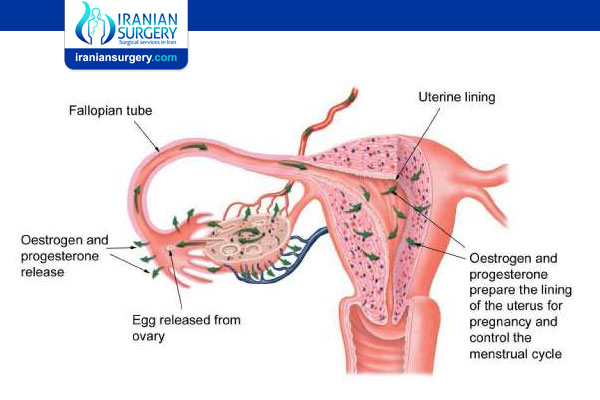How Long Do Ovaries Work After Hysterectomy?
How Long Do Ovaries Work After Hysterectomy?
A hysterectomy is a surgery to remove a woman's uterus (also known as the womb). The uterus is where a baby grows when a woman is pregnant. During the surgery the whole uterus is usually removed. Your doctor may also remove your fallopian tubes and ovaries or per patients request decide to leave one or both of them intact. After a hysterectomy, you no longer have menstrual periods and cannot become pregnant.
Removal Of the Ovaries (Salpingo-Oophorectomy)
The National Institute for Health and Care Excellence (NICE) recommends that a woman's ovaries should only be removed if there's a significant risk of associated disease, such as ovarian cancer. If you have a family history of ovarian or breast cancer, removing your ovaries may be recommended to prevent you getting cancer in the future.
Your surgeon can discuss the pros and cons of removing your ovaries with you. If your ovaries are removed, your fallopian tubes will also be removed. If you have already gone through the menopause or you're close to it, removing your ovaries may be recommended regardless of the reason for having a hysterectomy. This is to protect against the possibility of ovarian cancer developing.
Some surgeons feel it's best to leave healthy ovaries in place if the risk of ovarian cancer is small – for example, if there's no family history of the condition. This is because the ovaries produce several female hormones that can help protect against health problems such as weak bones (osteoporosis). They also play a part in feelings of sexual desire and pleasure.
If you'd prefer to keep your ovaries, make sure you have made this clear to your surgeon before your operation. You may still be asked to give consent to treatment for having your ovaries removed if an abnormality is found during the operation. Think carefully about this and discuss any fears or concerns you have with your surgeon.
What are the risks of having your ovaries removed?
When your ovaries are removed, you lose the estrogen that they produce. Without estrogen, you will go into early menopause. This can cause hot flashes and other symptoms. Having your ovaries removed before age 65 may increase your chance of getting:
. Osteoporosis, which can lead to broken bones and hip fractures.
. Heart disease, which is one of the leading causes of death in women in Canada.
Women who choose to have their ovaries removed can take estrogen therapy. This treatment doesn't prevent heart disease, but it helps to lower your risk of osteoporosis. If you already have bone loss, other medicines can help protect your bones.
Surgical Menopause
If you have a total or radical hysterectomy that removes your ovaries, you'll experience the menopause immediately after your operation, regardless of your age. This is known as a surgical menopause. If a hysterectomy leaves 1 or both of your ovaries intact, there's a chance that you'll experience the menopause within 5 years of having the operation.
Although your hormone levels decrease after the menopause, your ovaries continue producing testosterone for up to 20 years. Testosterone is a hormone that plays an important part in stimulating sexual desire and sexual pleasure. Your ovaries also continue to produce small amounts of the hormone estrogen after the menopause. It's a lack of estrogen that causes menopausal symptoms such as:
. hot flushes
. depression
. vaginal dryness
. sleep problems (insomnia)
. fatigue
. night sweats
Hormone replacement therapy (HRT) is usually used to help with menopausal symptoms that occur after a hysterectomy.
About Iranian Surgery
Iranian surgery is an online medical tourism platform where you can find the best gynecologists and fertility specialists in Iran. The price of Hysterectomy in Iran can vary according to each individual’s case and will be determined by an in-person assessment with the doctor.
For more information about the cost of Hysterectomy in Iran and to schedule an appointment in advance, you can contact Iranian Surgery consultants via WhatsApp number 0098 901 929 0946. This service is completely free.
Source:
https://www.nhs.uk/conditions/hysterectomy/considerations/
https://myhealth.alberta.ca/Health/Pages/conditions.aspx?hwid=tb1884


